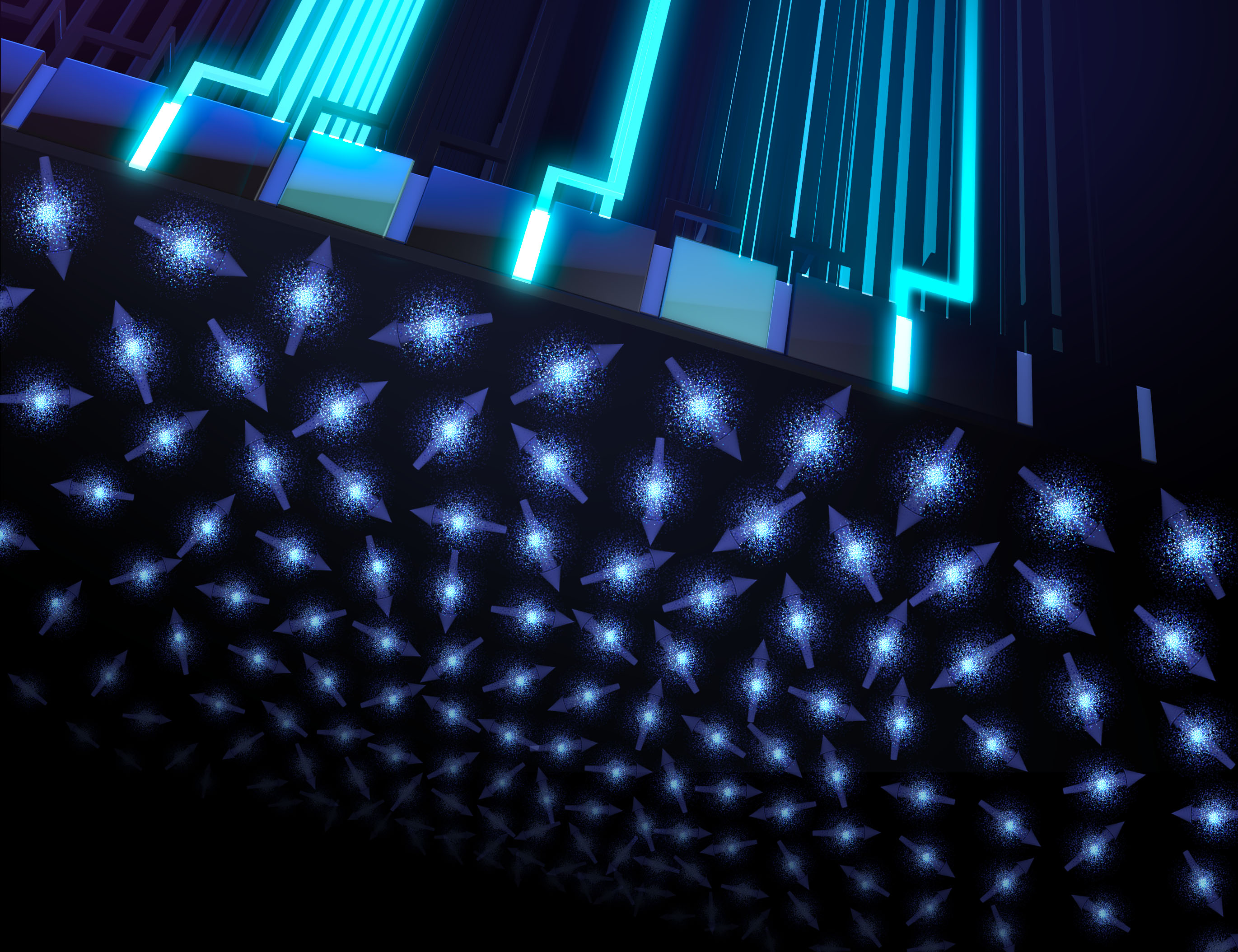Sydney spinout DeteQt secures backing for quantum sensing tech

- DeteQt secures pre-seed funding from Main Sequence Ventures and ATP Fund
- Patented diamond-on-silicon tech enables highly sensitive, scalable sensors
- First funded applications include GPS-denied navigation for defence, subterranean imaging for mining, and portable MRI systems
- Spun-out from the University of Sydney Nano Institute
DeteQt, a pioneering quantum sensing startup, has secured three-quarters of a million dollars in pre-seed funding from Australia’s Main Sequence Ventures and US deep-tech investor ATP Fund, positioning the company for rapid growth in the global quantum sensing market.
Using its patented ‘diamond-on-silicon’ approach, DeteQt is developing highly sensitive, portable and scalable quantum magnetometers (magnetic sensors) with applications spanning GPS-denied navigation, critical mineral detection and portable medical imaging.
The company is a spin-out from the University of Sydney Nano Institute and has attracted interest from domestic and US partners in those sectors.
DeteQt’s CEO, University of Sydney Adjunct Professor Jim Rabeau, announced the investment at last week’s Quantum Australia Conference. Professor Rabeau’s career spans leadership roles at Microsoft’s quantum computing program, Deloitte, CSIRO and, more recently, as president of the Australian arm of US-based quantum company Infleqtion.
He told the conference that DeteQt is a strong example of how Australia’s quantum investment is driving real-world impact – translating world-class research into a commercially viable deep-tech companies addressing critical market needs.
Unlocking the opportunity
Current sensor technologies in mining, health and navigation have hit fundamental limits. DeteQt’s diamond-on-silicon quantum sensors provide a new approach, integrating nitrogen-vacancy diamond technology with traditional silicon chip fabrication.

By leveraging industry-standard semiconductor manufacturing processes, DeteQt ensures its sensors are not only highly sensitive but also low-cost, scalable and manufacturable at volume – critical factors for real-world deployment in high-precision sensing applications.
“Our technology is designed to address some of the world’s biggest challenges – navigation in GPS-denied environments, more effective critical mineral exploration and next-generation medical imaging,” Professor Rabeau said. “By integrating quantum sensors with scalable semiconductor processes, we’re delivering the sensitivity of quantum with the manufacturability and low-cost of silicon.”
In 2023, the federal government released the National Quantum Strategy, boosting the ambitions started with the $70 million investment in the Sydney Quantum Academy and later the $18.4 million investment in Quantum Australia, a growth centre aimed at fostering collaboration between researchers, startups and industry.
With increasing support from both public and private sectors, DeteQt shows how Australia can turn cutting-edge quantum research into real-world applications – creating new industries, jobs, and sovereign capability.
Market momentum and applications
DeteQt has secured partnerships in Australia and the US in its early stage, including:
Defence & Navigation: $3 million contract with the Australia Defence Force secured for GPS-denied navigation systems.
Mining & Critical Minerals: Working with industry leaders to develop next-generation subterranean imaging tools. Partnership with Adelaide-based Fleet Space for better detection of critical minerals.
Medical Imaging: Collaborating with US partner OneScan to assess the potential for portable MRI systems using quantum sensing.

From lab to commercial scale-up
DeteQt was founded by Adjunct Professor Jim Rabeau and Professor Omid Kavehei from the University of Sydney Nano Institute and Faculty of Engineering, bringing together expertise in diamond-based quantum sensing and semiconductor design. The team is expanding, with Chief Operating Officer Rupal Ismin joining in March 2025 bringing deep experience scaling startups in both the San Francisco Bay Area and Australia.
“With strong backing from investors, a growing ecosystem of partners, and a clear pathway to commercialisation, DeteQt is well-positioned to lead the next wave of quantum sensing innovation,” Professor Rabeau said.
* The sensor market is estimated to be $US19bn by 2030, according to Markets & Markets.
Declaration: The University of Sydney has provided an exclusive licence for the intellectual property used by DeteQt, which was developed by Omid Kavehei and Jim Rabeau.
About DeteQt
DeteQt pioneers advanced quantum sensor, leveraging diamond-on-silicon technology for navigation, mining and medical imaging. By integrating quantum physics with semiconductor manufacturing, DeteQt is unlocking new possibilities for scalable, real-world applications.

Jim Rabeau, CEO
Jim Rabeau, PhD in Physics, is the co-founder and CEO of DeteQt. With more than 20 years of leadership and innovation experience, Dr Rabeau has been instrumental in developing quantum sensing technology. He has successfully built initiatives at leading organisations such as Deloitte, Microsoft, CSIRO, Infleqtion and the University of Sydney. Dr Rabeau’s expertise in diamond quantum technology has positioned him as a pioneer in this field, where he leads DeteQt in delivering magnetic field sensing solutions.
Omid Kavehei, CSO
Omid Kavehei, PhD in Electrical Engineering, is the co-founder and Chief Scientific Officer of DeteQt. With more than a decade of experience in microelectronics and semiconductor systems, Omid has designed and fabricated nine distinct microchips. His work has been pivotal in advancing Australia’s semiconductor ecosystem, such as the Semiconductor Service Bureau. He has critically contributed to the high acuity CMOS chip of the Australian Bionic Eye project. He is currently leading the way for an emerging subcutaneous brain sensing solution through BrainConnect Pty Ltd. Omid’s expertise lies in creating innovative sensing technologies and brain interfacing solutions, making him a key figure in DeteQt’s technological advancements.
Rupal Ismin, COO
With a career spanning Sydney, San Francisco, Chicago, and Auckland, Rupal Ismin brings a global perspective to launching high-impact innovation initiatives. She was the founding Director of the Sydney Knowledge Hub at the University of Sydney, a research commercialisation centre bridging academia and industry. She also served as interim launch head of Quantum Australia and was on the board of the Sydney Quantum Academy. For more than 15 years, Rupal has helped early-stage startups scale – first as founder of Andable, one of Australia’s early ecommerce ventures, and later in roles at TVN (acquired by a US public company), as GM of Hub Australia, and as COO of City Innovate, a US-based startup helping governments adopt emerging tech.



-and-associate-prof-michael-bowen-at-the-chau-chak-wing-museum.-03may23.-university-of-sydney.-photo-stefanie-zingsheim.jpg)